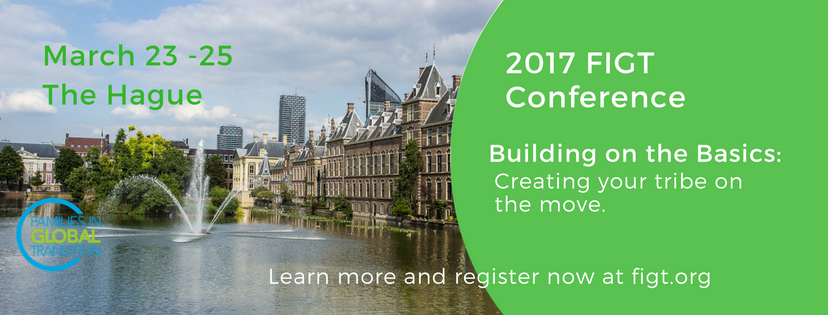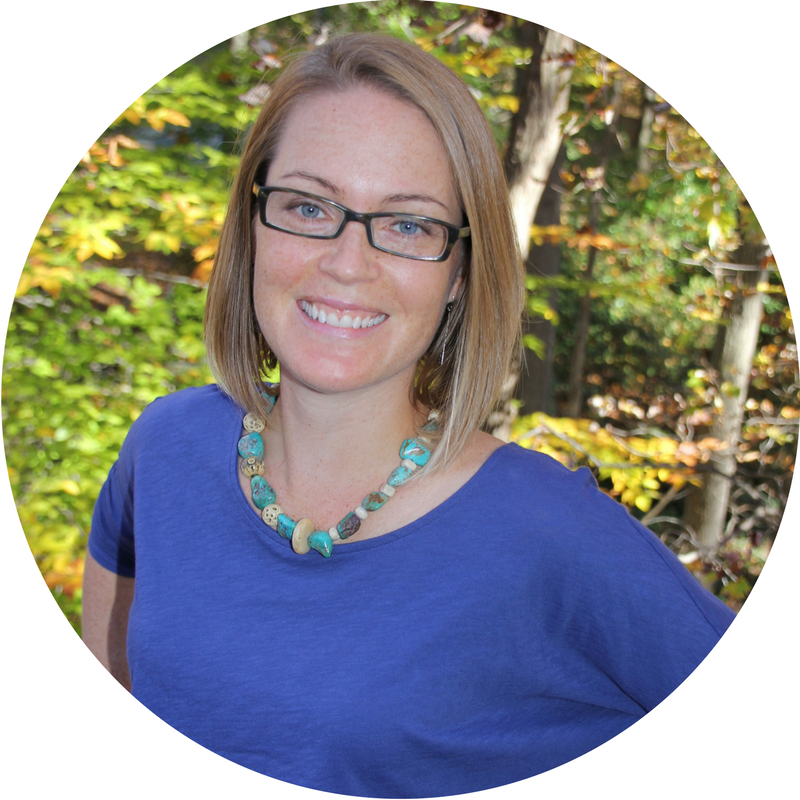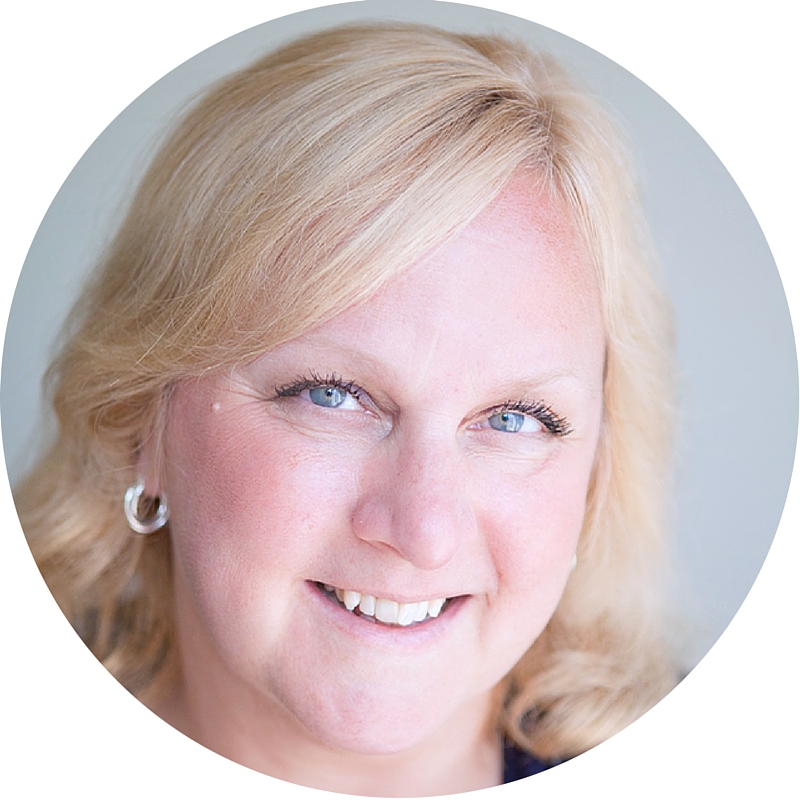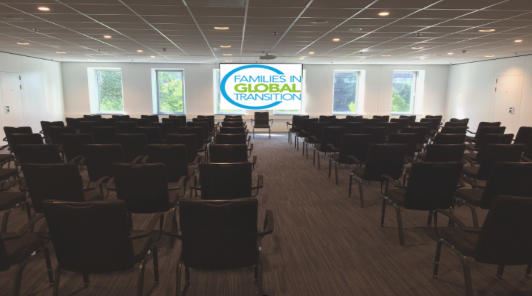In Part 2 of a series, three new and existing FIGT members share why they go to the FIGT conference and 2-3 tips/suggestions on what to do there.

The 2017 FIGT Conference - Building on the Basics: Creating Your Tribe on the Move is a week away! Have you started your mental packing list already? Are you ready?
Get inspired with Part Two: The People Who Make up our Tribe or Why I Go to the Families in Global Transition Conference of our series from three new and existing FIGT members as they share “Why I go to the FIGT conference” and 2-3 tips/suggestions on what to do while there.

 Name: Claudia Landini
Name: Claudia Landini
Conferences Attended: 2016 - Amsterdam
1. Why I am going to the FIGT conference?
I have been living abroad for almost 28 years, and transitioning has become a constant in my life. However, it is not so easy to talk about the feelings involved in this kind of mobile existence, both because they are complex, fascinating, deep and difficult to convey to those who have not gone through the same experiences, and because they keep on changing while mobility increases.
FIGT is a privileged space where we can talk about the deepest feelings linked to mobile life because we know that we’ll be understood. It is a stimulating space where we get together to develop ideas and practices to make mobile life more and more meaningful and rich.
For three days, we belong to a space where fresh and exciting approaches to mobile life are presented, discussed, analysed and integrated. It is also a place where everybody can feel in tune with the rest of the crowd. We are all linked by the common enthusiasm for a life in contact with diverse cultures, and by the intoxicating feeling of being part of the world in its truest sense.
And if these reasons were not enough for me to attend the FIGT conference, I can certainly add that last year I came away with loads of interesting contacts and touched by the magic of a unique human experience.
2. 2-3 Tips or suggestions on what to do at the conference?
- Study the program well and decide beforehand what sessions to attend.
- Participate in as many activities, sessions and presentations as possible, and try to do something even after the conference. Bonding with other participants is easier at a restaurant, when there is no rush to go and take a place for the next session.
- Do not be shy or scared, and talk to people, because everyone is at the conference to enjoy such a privileged moment of sharing. They will be happy to know you and tell you about themselves, and you might discover and learn things you were not anticipating at all
----
 Name: Dana Nelson
Name: Dana Nelson
Conferences Attended: First conference this March!
1. Why I am going to the FIGT conference?
In terms of why I'm coming to the conference, I thought it would be a great opportunity to meet other people living abroad and working with the international community.
As a therapist who works with those living abroad, it's not always easy to build a network or meet others doing this type of work -- so I hope to make connections with other professionals and also just learn from everyone else's experiences so I can use this knowledge to better help my clients.
I had also just heard great things about the conference from several different people, so I thought it would be a fun experience!
2. What I'm planning to do at the conference for my first time?
I guess my tip (or my goal for myself!) is just to try to talk to as many people as possible. There are actually a number of people whose work I've been following from afar or whom I've "met" only remotely and who I know will be at the conference, so I've been trying to make plans to meet some of them in person while we're there. Otherwise, I'm just going in with an open mind and not exactly sure what to expect.
----
 Name: Linda Janssen
Name: Linda Janssen
Conferences Attended: 2013, 2014, 2015, 2016
1. Why I go to the FIGT conference?
I attended my first FIGT conference as an Ignite Speaker in 2013, and I’ve attended and served as a volunteer (including two years as a recent Board Member) ever since. I wouldn’t miss the FIGT conference because of the camaraderie, connections and to stay current on developments in cross-cultural life. While I’m currently repatriated − at least for now − a good share of my career remains globally-focused as an intercultural communications trainer and resilience coach helping international businesses, employees and expats. Like many, I’m also parenting from afar as my son is now teaching English on the other side of the world.
2. 2-3 Tips or suggestions on what to do at the conference?
I can’t emphasize enough how welcoming FIGT conferences are. The particular details may differ from one person to the next, but we are all bound by the shared experience of what it means to live, work, study, nurture our families, or simply find our way in different countries and cultures. Suddenly everyone understands the challenges, opportunities, decisions and trade-offs we all make in living a globally mobile, cross-cultural life. Its like a huge family reunion: we have found our tribe, we are accepted, and we belong.
From there it just keeps getting better, as we gain information, learn new approaches, and are stretched by the insights offered by the speakers, panels, and forums. And the best part? To me, it’s the one-to-one connections made through sharing quiet conversations, group discussions, activities, meals. You may arrive not knowing anyone, but I guarantee you, that won’t last long, and you will leave energized and appreciative of all the wonderful people you’ve come to know.
 As you can see, there are many different reasons on why we go to the FIGT annual conference but first and foremost, it is to connect with one another! (If you haven't yet, don't forget to take a look at Part I of this series.)
As you can see, there are many different reasons on why we go to the FIGT annual conference but first and foremost, it is to connect with one another! (If you haven't yet, don't forget to take a look at Part I of this series.)
Thanks to Claudia, Dana, and Linda and the rest of our contributors for sharing your stories and preparing us for the conference. We look forward to meeting you or reconnecting with you again next week!
